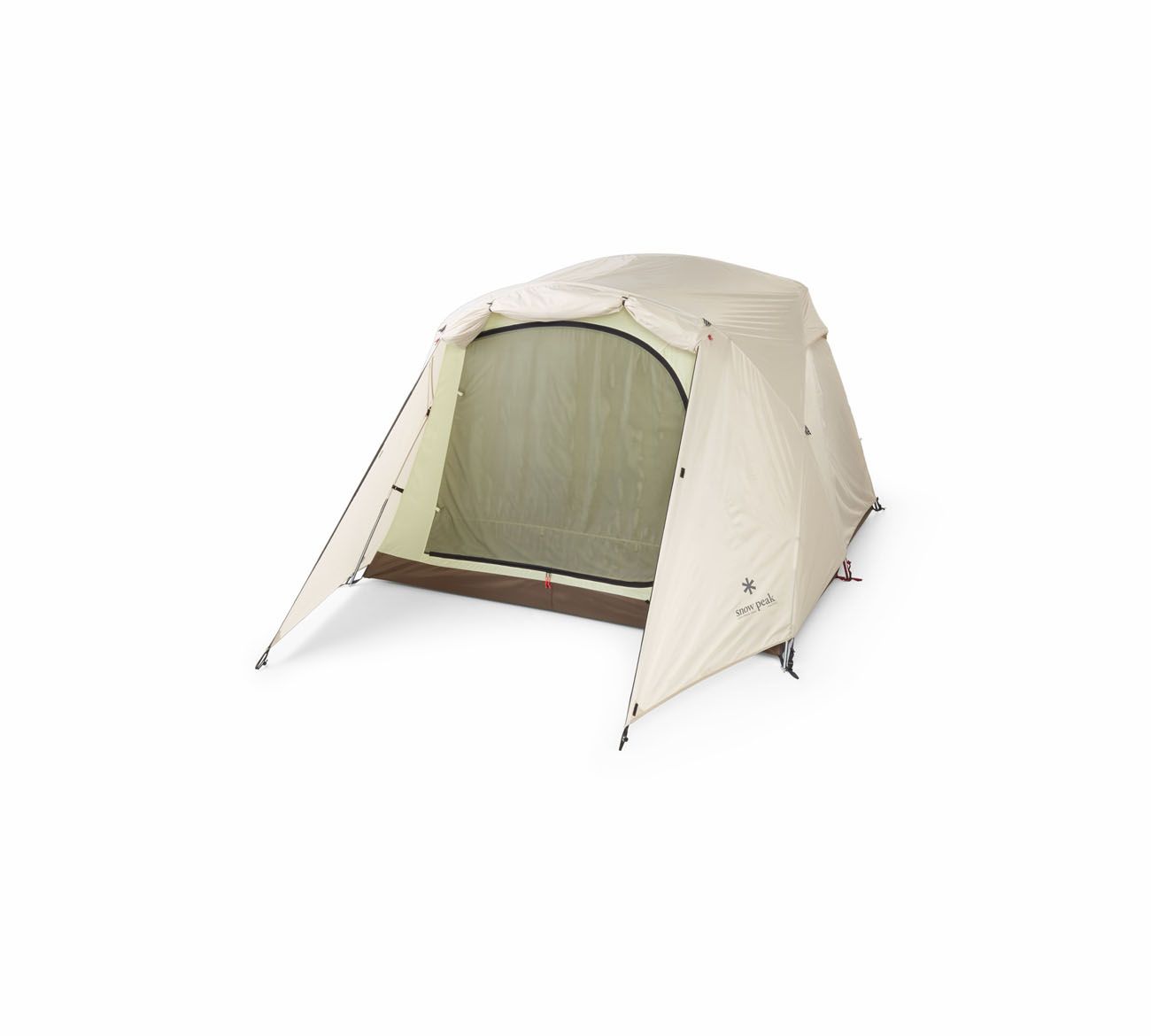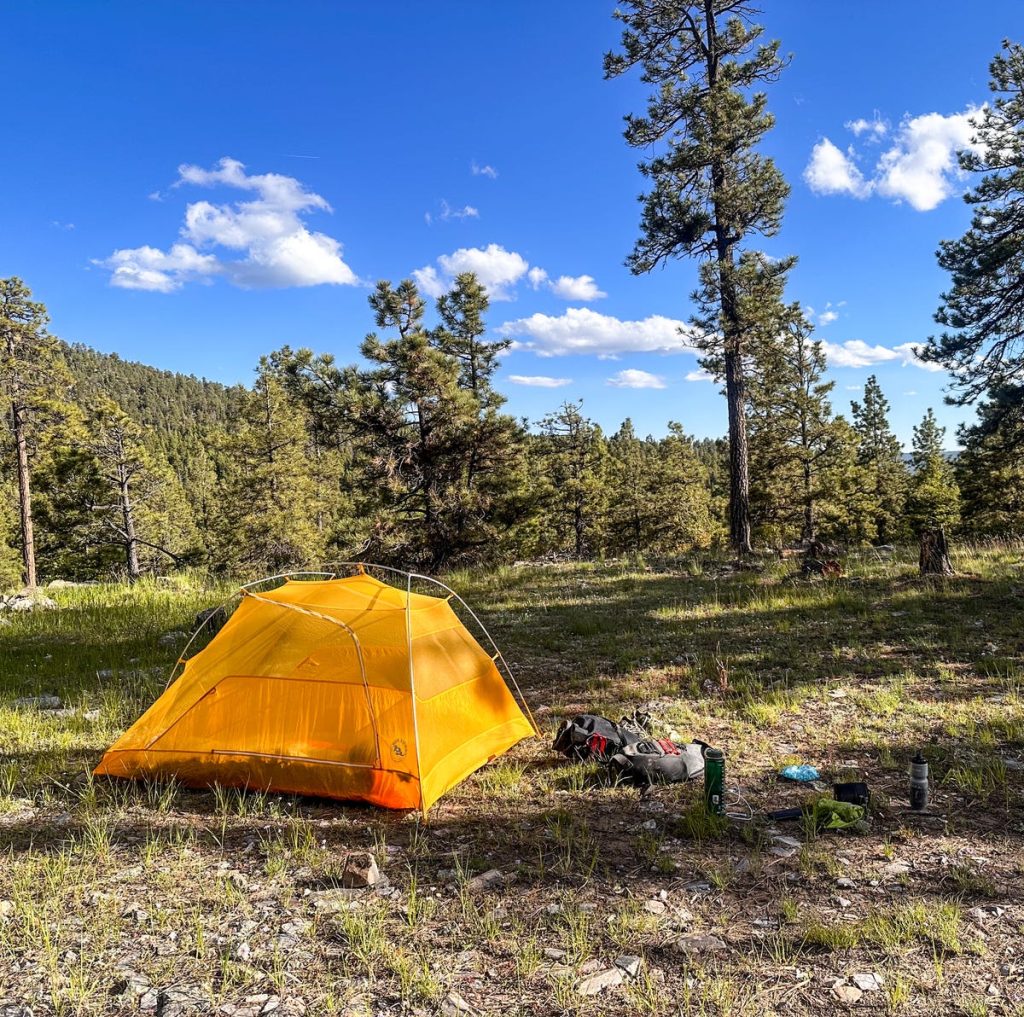Have you ever wondered if the soap you use for your camping gear could work on your tent too? When you’re out in nature, keeping your tent clean is important, but you want to be sure the products you use won’t damage it.
Using the wrong soap can ruin your tent’s fabric or waterproof coating, turning your cozy shelter into a problem. You’ll discover whether camp soap is safe and effective for cleaning your tent, and learn the best tips to keep your gear fresh and ready for your next adventure.
Keep reading—you’ll want to know this before your next trip.
Camp Soap Basics
Camp soap is a special soap made for outdoor use. It helps clean your body and gear while camping.
People often ask if camp soap can be used on a tent. Knowing the basics of camp soap will help answer this.
What Is Camp Soap?
Camp soap is a type of soap designed for outdoor cleaning. It is gentle on the skin and the environment.
This soap cleans dirt, sweat, and grime without harming nature. Camp soap is usually biodegradable.
Ingredients And Properties
Camp soap often uses natural ingredients. These include plant oils and mild cleansers that break down easily.
The soap is low in chemicals and free from harsh detergents. It protects water, soil, and plants near campsites.
- Made from plant-based oils like coconut or olive oil
- Contains biodegradable surfactants for cleaning
- Free from phosphates and synthetic fragrances
- Gentle on skin and fabric
- Breaks down quickly in the environment

Credit: www.treelinereview.com
Tent Fabric Types
Tents come in many fabric types. Each fabric needs special care.
Knowing the fabric helps choose the right cleaner. This keeps the tent safe.
Common Tent Materials
Most tents use nylon, polyester, or canvas. Each has different features.
Nylon tents are light and strong. Polyester tents resist sun damage well. Canvas tents are heavy but very durable.
- Nylon:Lightweight, water-resistant, easy to pack
- Polyester:Strong, UV resistant, less stretch
- Canvas:Heavy, breathable, very durable
Material Sensitivity To Cleaners
Different fabrics react differently to soaps and cleaners. Some cleaners can harm the tent.
Camp soap is gentle and usually safe. Still, test it on a small area first.
- Nylon:Avoid harsh chemicals; gentle soap is best
- Polyester:Can handle mild soaps; avoid bleach
- Canvas:Needs mild, natural soaps; no strong detergents
Using Camp Soap On Tents
Camp soap is popular for cleaning camping gear. Many wonder if it is safe to use on tents.
This article explains how to use camp soap on tents safely. It also covers risks and tips to avoid damage.
Safe Application Methods
Always dilute camp soap in water before applying it to your tent. Using soap directly can harm the fabric.
Use a soft sponge or cloth to gently clean the tent surface. Avoid scrubbing too hard to protect the material.
- Mix one tablespoon of camp soap with one gallon of water
- Apply the solution with a soft sponge or cloth
- Rinse the tent thoroughly with clean water after washing
- Let the tent dry completely before packing it away
Potential Risks And Precautions
Camp soap may contain chemicals that harm tent fabrics or waterproof coatings. Test a small area first.
Do not use harsh brushes or strong soap mixtures. They can damage the tent’s waterproof layer and fabric strength.
- Avoid using camp soap on tents with special waterproof coatings without testing
- Do not scrub too hard or use abrasive tools
- Rinse well to remove all soap residues
- Store tents dry to prevent mold after cleaning
Alternative Cleaning Solutions
Cleaning a tent is important to keep it in good shape. Some people ask if camp soap can be used on tents. There are other cleaning options that work well and keep the tent safe.
Using the right cleaner helps protect the tent fabric and its waterproof coating. Let’s look at different cleaning solutions you can try.
Commercial Tent Cleaners
Many companies make cleaners specifically for tents. These cleaners are gentle but effective. They remove dirt, stains, and mildew without harming the fabric.
Commercial tent cleaners often come as sprays or liquids. They usually need to be mixed with water before use. Follow the instructions on the label for best results.
- Safe for waterproof coatings
- Remove tough stains and mildew
- Easy to use with water
- Designed for outdoor fabrics
Natural Cleaning Options
You can clean tents using natural ingredients found at home. These options are gentle and eco-friendly. They work well for light dirt and refreshing the tent.
Common natural cleaners include baking soda, vinegar, and mild soap. Use them with water and a soft brush or cloth. Avoid strong soaps that can damage the tent fabric.
- Baking soda removes odors and dirt
- White vinegar kills mildew and mold
- Mild soap cleans without harming fabric
- Use lukewarm water for best cleaning
Step-by-step Tent Cleaning
Cleaning your tent helps keep it strong and ready for your next trip. Camp soap is gentle and safe to use on tents. It removes dirt and grime without harming the fabric.
This guide shows you how to clean your tent step-by-step using camp soap. Follow each part carefully for the best results.
Preparation Before Cleaning
Start by setting up your tent in a shaded area. Avoid direct sunlight to protect the fabric. Remove all gear and shake out loose dirt and debris.
Check your tent for any damage. Fix small tears before cleaning to stop them from getting worse. Gather your cleaning supplies like a soft brush, camp soap, and water.
- Find a shaded, flat spot to set up the tent
- Remove all items from inside the tent
- Shake out dust and dirt
- Inspect for tears or holes
- Prepare camp soap and soft brush
Cleaning Process Using Camp Soap
Mix camp soap with water in a bucket. Use a soft brush or cloth to apply the soapy water gently. Clean the tent fabric without scrubbing hard to avoid damage.
Pay special attention to areas with dirt or stains. Rinse the tent well with clean water to remove all soap. Avoid using harsh detergents or bleach as they can harm the fabric.
- Mix camp soap and water in a bucket
- Use a soft brush or cloth to clean gently
- Focus on dirty or stained spots
- Rinse thoroughly with clean water
- Do not use bleach or strong detergents
Drying And Maintenance Tips
Let your tent dry completely before packing it away. Set it up in a dry, shaded area. This helps prevent mold and mildew growth inside the fabric.
Store your tent loosely in a cool, dry place. Avoid folding it tightly for long periods. Check your tent regularly and clean it after every camping trip to keep it in good shape.
- Dry the tent fully in shade
- Keep away from direct sunlight when drying
- Store tent loosely in a dry area
- Do not store wet or damp
- Clean after every camping trip
Protecting Tent Waterproofing
Camping soap is useful for cleaning gear, but it can affect your tent. Tents have special waterproof coatings. These coatings keep water out and protect you inside.
It is important to know if camp soap can harm these coatings. Using the wrong soap might make your tent less waterproof.
Effects Of Soap On Waterproof Coatings
Many camp soaps contain chemicals that break down waterproof layers. These layers are often made from silicone or polyurethane. Soap can remove or weaken these materials.
When the coating is damaged, water can soak into the fabric. This causes leaks and reduces tent life. Soap with strong detergents is the main cause of damage.
- Soap can remove waterproof coatings
- Harsh chemicals weaken fabric protection
- Water can pass through damaged areas
- Repeated washing worsens the effect
Reapplying Waterproof Treatments
After cleaning your tent, you may need to reapply waterproof treatment. This restores the protective layer. Use products made for tents and outdoor gear.
Apply treatments evenly on clean, dry fabric. Let the tent dry fully before use. Regular treatment keeps the tent waterproof and durable.
- Choose waterproof sprays designed for tents
- Clean tent gently without harsh soaps first
- Spray evenly and cover all surfaces
- Allow proper drying time before camping
Camp Soap Environmental Impact
Camp soap is a common choice for cleaning while outdoors. It is important to think about how it affects nature. Using soap near tents can change the environment in small ways.
Understanding the environmental impact helps campers make better choices. This keeps forests and lakes clean and safe for animals and people.
Biodegradability And Eco-friendliness
Biodegradable camp soaps break down quickly in nature. They reduce pollution in soil and water. Eco-friendly soaps avoid harmful chemicals that can hurt plants and animals.
Look for soaps labeled biodegradable or natural. These products use ingredients that nature can handle well. This keeps campsites cleaner and safer for wildlife.
- Made from plant-based ingredients
- Free from synthetic fragrances and dyes
- Break down fast in water and soil
- Safe for nearby plants and animals
Safe Disposal Practices
Never pour camp soap directly on the ground near your tent. Soap can harm the soil and water sources. Use water away from campsites to wash dishes or clean yourself.
Carry water away from your tent for washing. Let soapy water drip onto rocks or gravel. This helps the soap break down naturally without harming plants.
- Wash at least 200 feet from water sources
- Use a small amount of soap
- Scatter soapy water over a wide area
- Pack out all trash and leftover soap

Credit: mwerre.com.au

Credit: www.popularmechanics.com
Frequently Asked Questions
Can Camp Soap Damage A Tent?
Camp soap is generally safe for tents if used correctly. Use a small amount and rinse thoroughly. Avoid using harsh or abrasive soaps to prevent damage to the tent fabric. Always test on a small area first to ensure no adverse effects.
Is Camp Soap Biodegradable For Camping?
Yes, camp soap is often biodegradable, making it ideal for eco-friendly camping. It breaks down naturally, minimizing environmental impact. Always check the label to ensure the soap is truly biodegradable. Use it at least 200 feet away from water sources to protect natural habitats.
How Do I Clean A Tent With Camp Soap?
To clean a tent, mix camp soap with water. Gently scrub the tent with a soft brush. Rinse thoroughly with clean water to remove all soap residues. Ensure the tent is completely dry before packing to prevent mold and mildew.
Can Camp Soap Be Used On Other Gear?
Camp soap is versatile and can clean various camping gear. Use it on dishes, clothes, and even skin. Always follow the instructions on the label and test on a small area first to ensure compatibility with materials.
Conclusion
Camp soap can clean your tent gently without damage. It removes dirt and sweat well. Avoid strong soaps that harm fabric or waterproof layers. Always test soap on a small tent area first. Use a soft cloth or sponge to scrub lightly.
Rinse the tent with clean water after washing. Let the tent dry fully before packing it away. Keeping your tent clean helps it last longer. Simple care makes camping more enjoyable.

